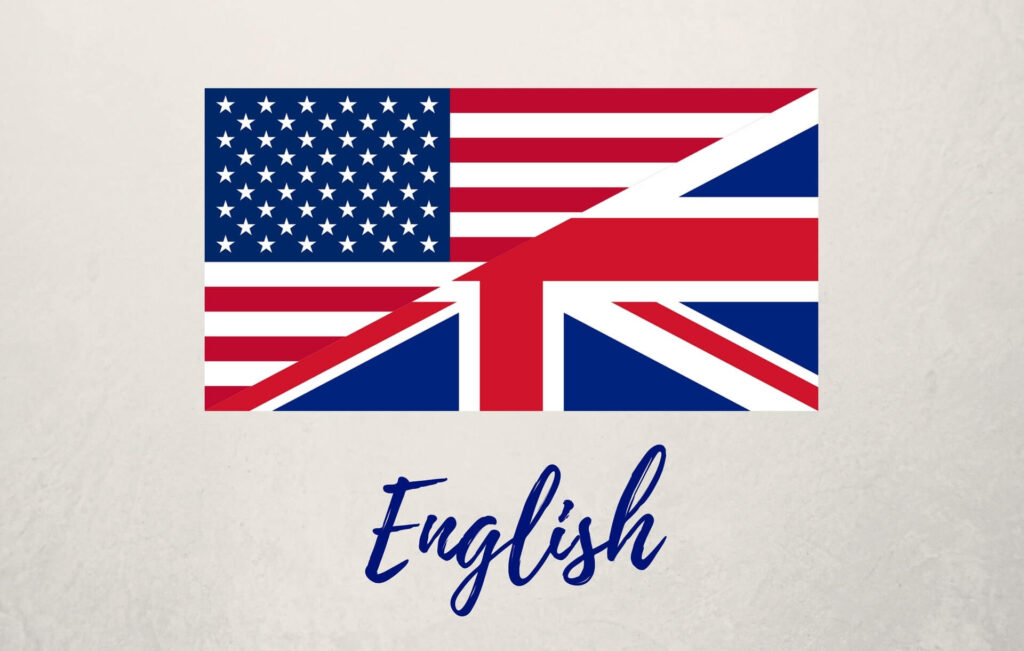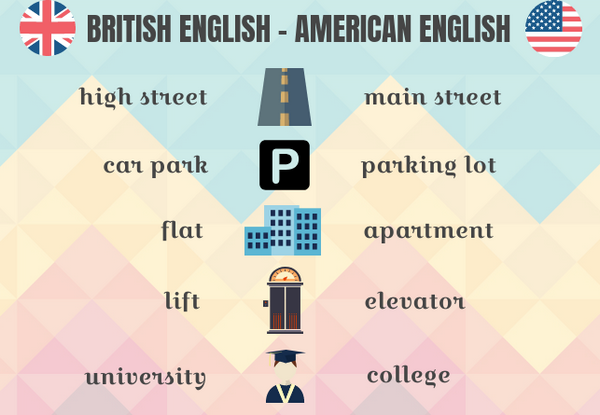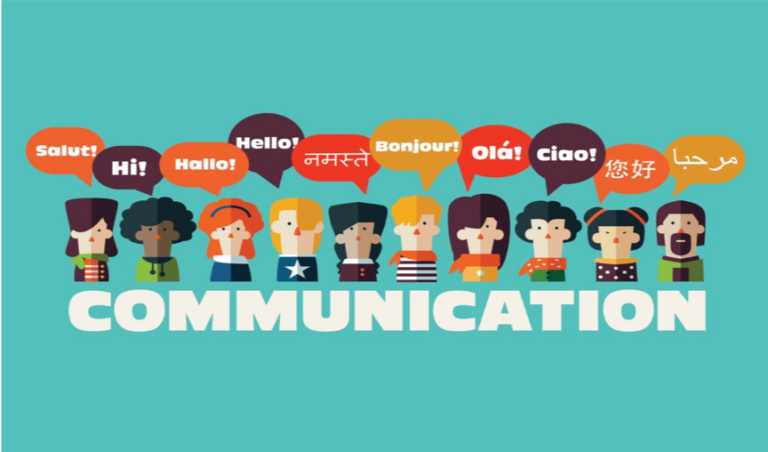Estimated reading time: 5 minutes
When someone mentions the English language, you likely don’t immediately think about the specific type of English that they are referring to – in fact, you presumably immediately think of the variety of English that you are most accustomed to using.
If we consider learning English, we don’t realize which variant of that we’re going to study. We think about the language that will help us to understand songs, texts or conversations.
For the majority of people, then, American English will often be the most ‘obvious’ form of English to use, since it is used by a larger proportion of the global population. However, there is also another, older form of English which is still used widely today: British English.
And the differences between these two variations on the same language are important to be able to recognize, but often, we struggle to recall the differences between the two.
Introduction: Why are American and British English different?

First of all, if we are to understand the main differences between, it is important to note why the two variations exist in the first place. After all, you might be asking – aren’t both just a version of English? Why do we need two different ‘types’ of English? How come American English and British English can’t simply be classified as both being English, and leave it at that?
Well, the answer to this question is largely in relation to history of the English language. When British settlers landed in the Americas centuries ago, spelling was yet to be standardised. In other words, there were no ‘official’ spellings, and would not be until the creation of the first dictionaries.
As a result of this, there was some leeway given in regards to spellings that were used, and when the first dictionaries were written, it was thus not of a great surprise that slight differences were seen in terms of certain spellings and words.
Moreover, it is widely believed that the American dictionary’s creator, Noah Webster, purposefully made a few subtle changes to the spellings used in the American dictionary version as a means of differentiating the two different cultures from one another, whereas prior to this, both had been tightly intertwined in every manner.
Despite of their differences, British english and American english represent a majority culture expanded around the world that create lot of dialectics of the english language.
The 3 Primary Differences between American and British English

So, we’ve covered why American and British English exist – but what about these differences? What makes the American version, standardised by Noah Webster, so different to the British English version which was standardised by London-based scholars?
There are three primary differences between American and British English that you should be aware of: accent (the pronunciation of the words and letters), spelling and word choice. But how do these three features differentiate the two versions of English?
1. Accent is the most notable difference
The most notable difference that you will likely recognize between American and British English is the accent. A huge number of Americans claim to love the sound of a British accent, and vice versa; but why are the two accents so different?
Once again, this goes back to history. The majority of American settlers came from a working class background, and at the time, these individuals had a natural tendency to pronounce the letter ‘R’ more strongly than those members of the elite. As a result of this, the vast majority of the American population spoke with a strong R, whereas those English speakers remaining behind in England instead began mimicking the trends established by the members of the elite – until, eventually, two distinct accents began to form from each other.
2. Different spellings between American and British English
There are a few different spellings between American and British English, but they can generally be summarised as follows:
For words with an oe or ae sound in British English, the American English equivalent usually uses just the e. The stem -ed is commonly seen in American English spellings, whereas in British English, it is generally more common to use the letter ‘t’ as the stem instead (for example, burned vs burnt).
Words ending in ence in British English typically end in ense for American English. Moreover, ue stems in British English (for example, in the word monologue) are commonly discarded entirely for American English.
Finally, words containing ou (the most common arguably being ‘colour’) in British English are usually just shortened to ‘o’ in American English (in this case, ‘color’).
3. Words in American English and British English
A final difference between American English and British English comes down to the choice of words that each language uses. These differences are less rooted in history, as spelling differences and accent are, and are rather developments that have occurred over time and more recently. The most obvious examples of different word choices, for example, are trousers (British) vs pants (American), or crisps (British) vs chips (American). The latter example is then further confused by British chips being called French fries in America! However, as time passes, some of these word choices are becoming more common in both languages, as people adapt to using them interchangeably.
Final Thoughts about British and American English diferences
British and American English are incredibly similar to each other, but share a few notable differences which help to distinguish them.
Regardless of this, it is important that you understand the differences between British and American English.
Learning new languages bring us to an unknown culture and help us to understand the differences between societies. With the language practice we enlarge our world vision and understand different thinking styles.






